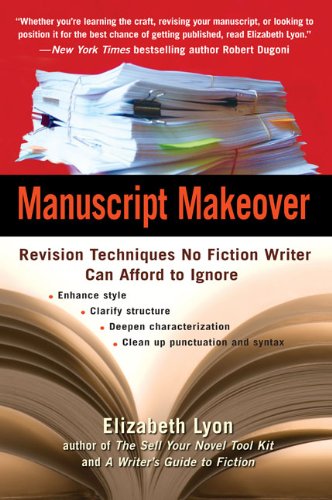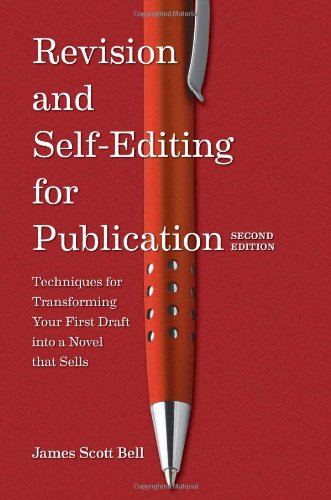"I use Grammarly's plagiarism checker because what I thought was an original idea for a novel about racism and poverty in the South, during the Depression, and told through the eyes of a 10yr old girl whose father is the local lawyer... might already exist."
 |
| Join IWSG and share your insecurities! |
I stupidly thought good novels were created from inspiration, sweat and fairy-dust; that certain authors just had the magic and breathed engaging narratives onto the pages. Of course I was delighted to learn the existence of 'drafts' and that my first one was allowed to 'suck' because I could edit it later. Easy, right?
Ha!
My first manuscript to earn a finished draft was a girl's mystery novel filled with passive language, poor grammar and only one suspect character (not much of a mystery in this who-done-it). I was keen to polish the story, but had no idea how.
I sent it off to an editor. That was a mistake.
What? Wait a minute Charmaine (I hear you ask ... in a kind of a creepy little girl voice), you always recommend getting a professional editor. What gives?
You should get your work edited professionally before publishing, but not before you edit your own work.
My manuscript was in such a mess that after a few chapters of painful interactions back and forth, my editor gave up on it. Truth was, it wasn't ready for the editor yet.
1. You should polish your story as much as you possibly can before you send it out to editors or beta readers. So how can you best edit your own work?
Put your manuscript away for a while, come back to it with fresh eyes.
2. Utilise an editing program for the really obvious problems. Word Spellcheck is very flawed, but will at least get rid of some issues. A better version of this is Grammarly, which I use for my online writing (there's also a check box for you to paste your work on their website).
3. Read books on revising before you take another look at your manuscript. I found these ones very helpful:
Take up a course to find the best strategies for tackling your manuscript. There are plenty offered through writing centres or online.
3. Read books on revising before you take another look at your manuscript. I found these ones very helpful:
Take up a course to find the best strategies for tackling your manuscript. There are plenty offered through writing centres or online.
 4. Study. You can find lots of courses on editing through your writers centre or online. I've said this many times before, Holly Lisle's How To Revise Your Novel is one of the best revisions courses I've ever undertaken (and there's been a few). Check it out, it will teach you so much about strengthening that first draft and tightening your story.
4. Study. You can find lots of courses on editing through your writers centre or online. I've said this many times before, Holly Lisle's How To Revise Your Novel is one of the best revisions courses I've ever undertaken (and there's been a few). Check it out, it will teach you so much about strengthening that first draft and tightening your story.5. Find a mentor. Someone who has more experience and can guide you through your manuscript's plot flaws and show you how to improve it.
Still want more on editing? Check out Denise Covey's guest post on writing, revising and editing at revisionseditions.



I used an editor twice (I've only had short stories published so far (I've only tried to write short stories so far (oh, god, I'm nesting, aren't I?))) He was excellent - after he sent back the second story he told me I should use the advice he'd already given me and that I should be able to figure it out from there. Both those stories were published, and since then I've had eleven stories published. And now there's a novel in the pipeline.
ReplyDeleteIf you're interested, his name is Jim Parsons. He was excellent.
That's true Chris, you can learn so much by paying attention to the revisions your editor makes instead of just dismissing them as 'editor work'.
DeleteLots of great tips! I remember when I looked back at my first 'finished' novel after I learned some things. I shelved it. ;)
ReplyDeleteI don't believe any novel is unsalvageable Rachel, maybe it's time to have another sneak peek at that manuscript and take from it the key element that made the story appeal to you in the first place :)
DeleteThanks for the tips! I actually haven't read many books that were devoted to revising; I've read books on writing that had sections on revision, but not entire books on revision. I'll check out those books you recommended; they look interesting and useful.
ReplyDeleteNeurotic, I think I've actually read too many books on editing, there are definitely some better than others!
DeleteWise wise words. When/if I get to this point, I will really have to dig in and learn a new set of skills to help me edit. I admit it's not my strong suit. Thanks for the encouragement and recommendations!
ReplyDeleteIt can seem daunting at first, I originally thought editing was just checking spelling and grammar! When you're ready to move to that stage, I do recommend you check out the Holly Lisle course, it really is the best resource I've come across for showing step by step how to edit your novel.
DeleteI haven't gotten to the editor stage yet, but I've had enough go-rounds with my CPs that I know I have a ways to go before I get there.
ReplyDeleteI've read and enjoyed Bell's book, but I haven't tried Lyon's book yet. Maybe I'll go and check it out now.
Glad you're part of the IWSG.
Chem Ken, I'm a big fan of taking each step as I come to it. No need to rush into learning the editing stage until you feel you need to edit - There's plenty to learn at every step of the journey!
DeleteAWESOME. Oh man, I've turned down so many potential CP's because they didn't respect my time enough to try and edit their work some before handing it to me. I'm totally willing to put in the time to help someone, if they're willing to do the initial work.
ReplyDeleteAs far as editors go, I'm 100% with you. You should only send your work to an editor after all you can do. :)
Crystal, I have come across some people who think the editing isn't important because someone else will fix that up for them. I guess if you're happy to throw enough money at the problem, someone will, but you shouldn't be showing the same narrative problems to your CPs over and over again - I can see how that would be frustrating for you!
DeleteI agree with you on the point that we should edit our manuscripts until they shine.
ReplyDeleteI agree with you on the point that we should edit our manuscripts until they shine.
ReplyDeleteI agree with you that we should edit our manuscripts until they shine. Nothing but our most perfect work should go out into the world.
ReplyDeleteYes Rachna, it's all about image, if we want to appear professional we need to present professional work. Thanks for commenting!
DeleteHaven't read the books you listed above. More to add to the craft pile.
ReplyDeleteKnowing how to self-edit does save other people the agony of going through unfinished work.
There's so many self-editing books and guides out there Joy. If I had to just pick one, I've learned the most from Holly Lisle's course.
DeleteThank you for this great advice. My weak point I must admit is my self-editing. Just when I think I got all the mistakes, I find more on my second round of editing.
ReplyDeleteI go through many rounds Murees, and am sure it's perfect when it goes to the editor. Then it comes back with track changes right off the page :)
DeleteGreat post Charmaine. And thanks for the shout-out about Denise's post on Revisions & Editions!
ReplyDeleteNas
No problem Nas, it was a great post on a great site :)
DeleteI started out with the fantasy that all it took was a good idea and a solid dose of perseverance, but sadly it's a lot harder than I thought. Not as easy as it looks, this writing lark. I'm only just getting to the point where I feel I understand what's expected. Now I just have to produce it.
ReplyDeletemood
I'm right there with ya' moody! I think I've got it sorted, then I learn something new. Sigh.
DeleteI edit everything. I even edited this comment. Well, I haven't yet, but I'm sure I will by the time all is said and done. I'm just that way.
ReplyDeleteI haven't checked out Grammarly, but I've heard about it a lot. Thanks for the reminders of how important editing is. Nothing like reading a self-pub that is blatantly unedited for lack of knowledge.
M.L. Swift, Writer
If your comment is anything to go by, you'd do a great job of self-editing Mike!
DeleteVery good advice, Charmaine, and my most recent editor gave me lots of tips on self-editing in future!
ReplyDeleteThat is one of the good things about getting a good editor, you should be able to learn how to fix more and more mistakes yourself, once you know what your flaws are.
DeleteI love everything about rewriting, revising, and editing. So this post really resonated with me. Elizabeth Lyon's 'Manuscript Makeover' and James Scott Bell's 'Revision and Self-Editing for Publication' are some of my favorite books on this aspect of craft. I wasn't aware of the third book. Going to check it out ASAP!
ReplyDeleteThe other books I found very useful are: Jeff Gerke's 'Firs 50 Pages' and Renni Browne & Dave King's 'Self-Editing for Fiction Writers.' And everything that Donald Maass has ever written about the craft of writing.
Good advice. I find that self-editing also makes me a stronger writer for the future. ;)
ReplyDeleteYou know how much I love self editing, Charmaine, so I really enjoyed your post. Those books you recommend are great. I really must have another go at the Holly Lisle course if I can access it.
ReplyDeleteHave a happy writerly weekend.
Self-editing is hard to do, but practice and reading a good editing book helps. For CPing someone's else MS helped loads and them doing mine. It seemed to push me into a stronger analytic mode.
ReplyDelete